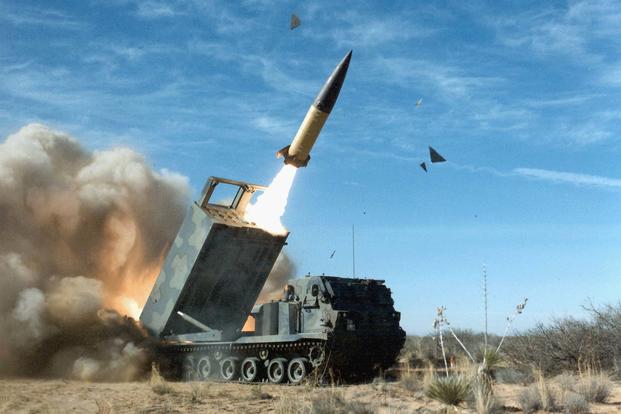The head of U.S. Pacific Command on Tuesday said he wants the Army to one day be capable of killing ships of potential adversaries in the South China Sea.
The Pacific region has traditionally been a maritime theater, but the Army has a role to play well beyond providing foot soldiers to seize and hold territory, according to Navy Adm. Harry Harris.
"What the Army brings traditionally is what they always bring, which is mass and firepower and capability," he told an audience at leadership discussion in Washington, D.C., sponsored by Defense One.
Harris said he has been encouraging Army leaders to embrace the concept of a land-based, anti-ship missile mission.
"I think the Army should be in the business of sinking ships with land-based, surface-to-ship missile systems," Harris said.
Other countries such as Japan have developed sophisticated missile system to deter the threat of potential Chinese aggression.
"I think about an area where you put these weapon systems on places in the western Pacific; they would place at risk potential adversaries in the South China Sea, the East China Sea, the Sea of Japan," Harris said. "I think it is an important concept, and we ought to be thinking about it as we figure out how to maintain that edge over our adversaries in the region."
Harris's hope for Army anti-ship missile operations gained some traction recently when the Defense Department's Strategic Capabilities Office in early November announced that the Army Tactical Missile System, or ATACMS, will soon be upgraded so it can engage moving targets both on land and at sea.
"With this capability, what was previously an Army surface-to-surface missile system can project power from coastal locations up to 300 kilometers [186 miles] into the maritime domain," Defense Secretary Ash Carter said in a Nov. 3 Defense Department press release.
Tension between the U.S. and China has been increasing in the region since the Chinese government built seven bases in the South China Sea on artificially-made islands, Harris said.
"I'm concerned about Chinese assertiveness particularly in the South China Sea and also in the East China Sea," Harris said. "That said, the [military to military] relationship with China on one level is actually good.
"I was in China several months ago and was treated extremely well," he added.
Gen. Robert Brown, commander of U.S. Army Pacific, is traveling in China as Army units take part in a Disaster Management Exchange exercise in China, Harris said.
"I think it is important that we have these mil-to-mil relationships," Harris said. "Even with countries that are potential adversaries, I think these relationships are positive, and we should try to cooperate where we can, but we have to be ready to confront if we must."
-- Matthew Cox can be reached at matthew.cox@military.com.



























